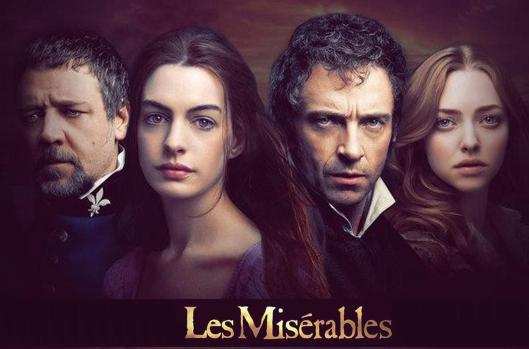by Jaizer Jim R. Nadal
Quite an incongruence, the genre of film labelled as “the musical”. One could not simply discern if these are movies in the guise of a music video or Broadway masquerading as blockbusters. Either way, the commercial appeal is undeniable; be it is a Disney movie in which the caricatures sing of undying love amidst a plethora of sky-lanterns or a high-school drama in which each and every enrolee is a certified musician. Children and tweens alike seem overtly ecstatic when news of yet another musical is in the works. But one cannot simply condemn these productions of birthing another staple meme in pop culture, however laughable it might seem to the self-proclaimed hipster. This particular form of media has been geared specifically towards the pre-pubescent audience, after all.
However, this is not always the case. For the traditional playwright, a well developed show equates to a Tony nomination, the Golden Globe of Broadway. It neither sheds integrity nor compromises vision for a quick buck. Critics treat musicals as formidable works of art in which the voice of the writer is as grandiose as that of his talents.
Such is the case of the 2012’s, “Les Miserables”. The film is based on the musical of the same name by Alain Boublil and Claude-Michel Schönberg which is in turn based on Les Misérables, the 1862 French novel by Victor Hugo. It is a major motion picture made even more extravagant by its stellar cast. Boasting names by no less than the leading men and women of modern cinema, this is not merely a contender for some trivial awards show but a smart bet in the upcoming Academy Awards.
The film is not shy of theatrics, beginning with a surreal shot of a horde of prisoners hauling in a French battleship in the midst of a storm. Jean Valjean (Hugh Jackman) is a prisoner who is granted parole by Javert (Russell Crowe), a prison guard. After a stint with the church involving stolen silver, Valjean vows to live in redemption for his sins.
Commendable performances include that of Anne Hathaway in her portrayal of Fantine. She pulls out a show-stopper in her rendition of “I Dreamed a Dream”, which comes early in the show; her head shorn of flowing hair, her features blurred from abuse. This is proving to be a high point in her career as it has garnered her a Golden Globe for best supporting actress; quite a leap for the girl who starred in such family films as Princess Diaries. Mr. Jackman delivers an act that is truly worthy of his name. Despite gaining recognition as Wolverine in the X-Men franchise, he has made his impression in other venues; starring in the musical “The Boy from Oz” which earned him a Tony for Best Leading Actor. Eddie Redmayne is the big surprise, a dramatic dynamo. A new-comer compared to his colleagues, he turns “Empty Chairs at Empty Tables”, that anthem of anguishing loss, into a showcase for sung passion.
Then there is Javert, the implacable tracker of the piece. Mr. Crowe has the ruthless part down pat, and he’s an impressive physical presence in blue uniform. Yet this formidable actor hasn’t mustered the musical variety, and therefore the dramatic power, to make Javert compelling as an individual. What’s missing most from his performance is demonic sizzle, a sense of the wild internal conflicts that make Javert’s demise necessary, not just inevitable. For those who might deem this project a tad too melodramatic, Helena Bonham Carter and Sacha Baron Cohen enliven the piece with welcome comic relief as the scurrilous Thenardiers.
Director Tom Hooper uses unconventional methods to milk the most sincere performance from the cast. For one, he coerced the cast to sing live. This gives the audience the impression that these people are actually “performing” rather than just “acting”, as if it were live and the artists are at their most vulnerable. The risk pays off nicely as the songs sound raw at moments as supposed to slick throughout. Another quirk is in the shots which are, for the most part, focused on the cast member’s faces when they sing. Here we see every excruciating detail as it unfolds in uncut vulnerability.
There is much to be had in the 158 minute running time of the film. We are subjected to these multi-faceted characters and their profligate demise. We see a portrait of the French Revolution that might be deemed too graphic. And despite this, we are forgiven for laughing at the scenes specifically shot for comic relief. All of this culminates to what might be the undisclosed heart of the film, a man seeking atonement for his sins. This might not be as accessible as High-School Musical or what have you, but it is by no means without heart. Les Miserables is a Tour de Force of cinema that resonates long after its last note.



